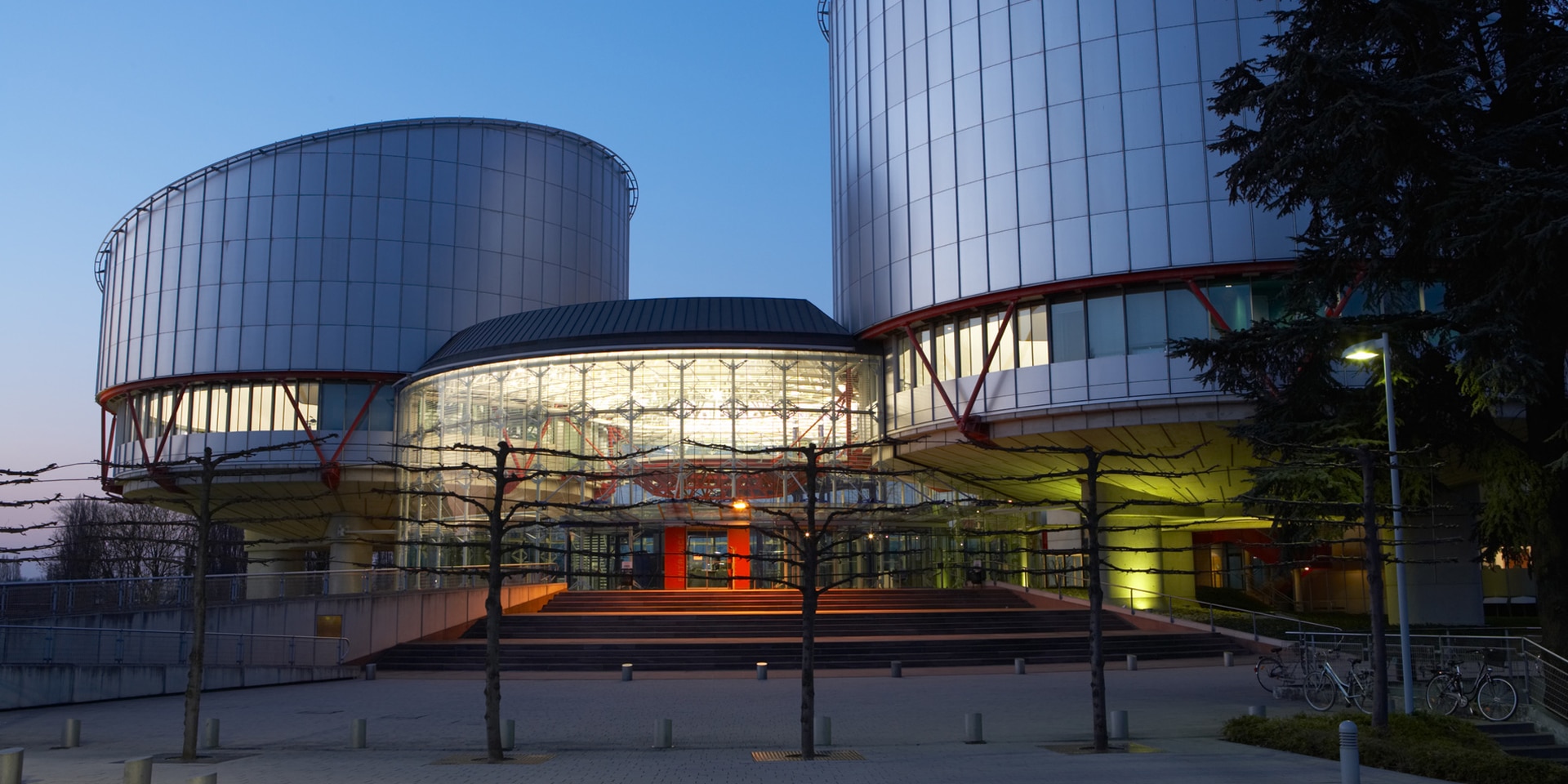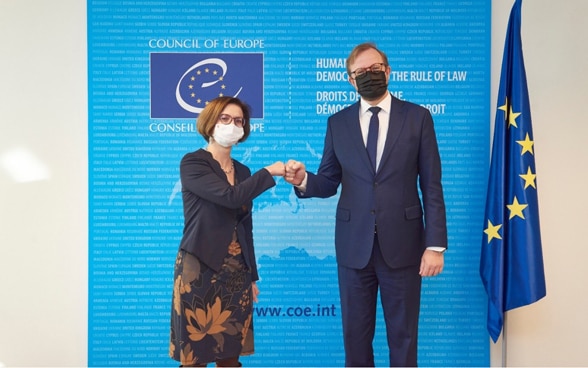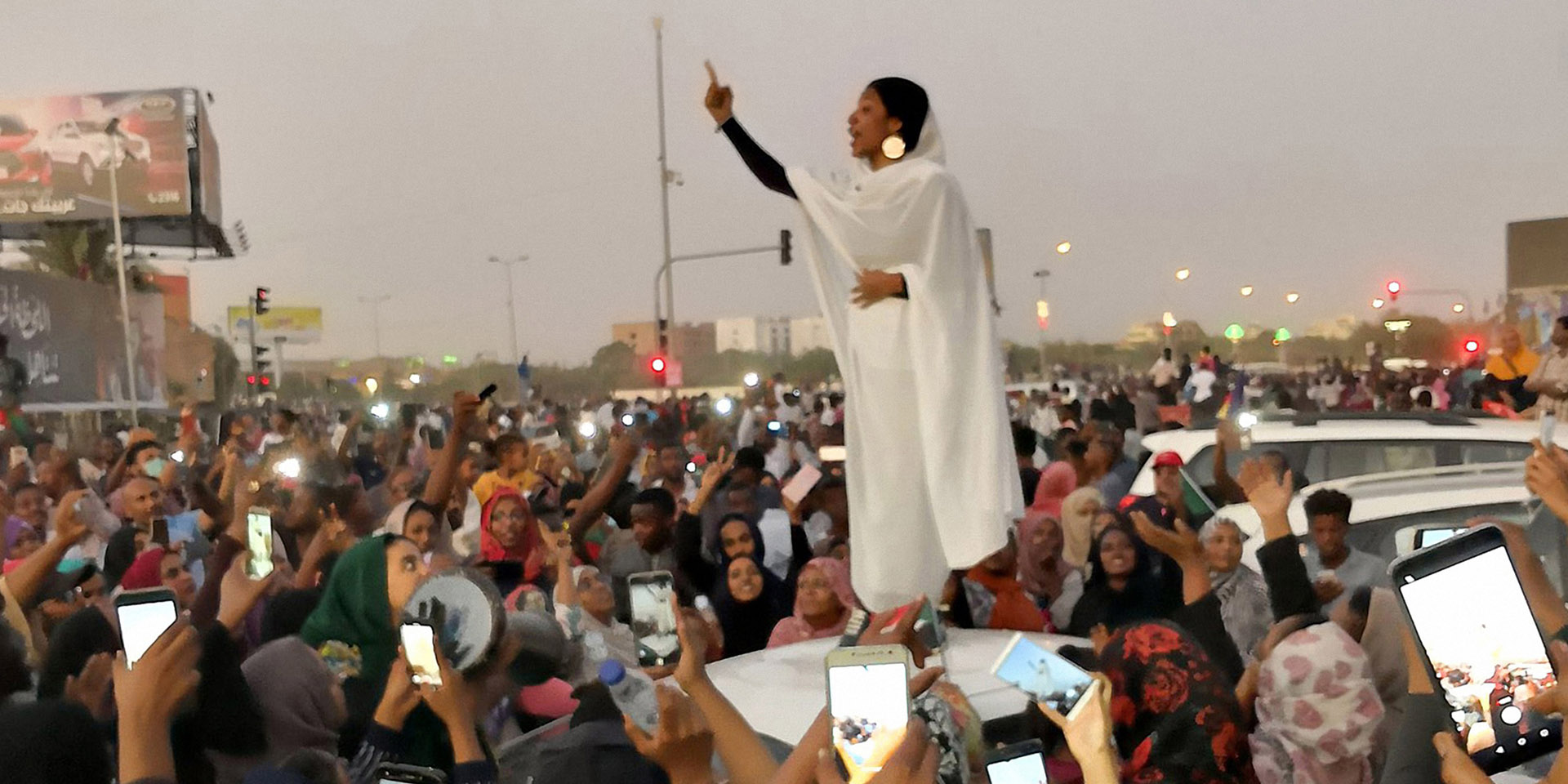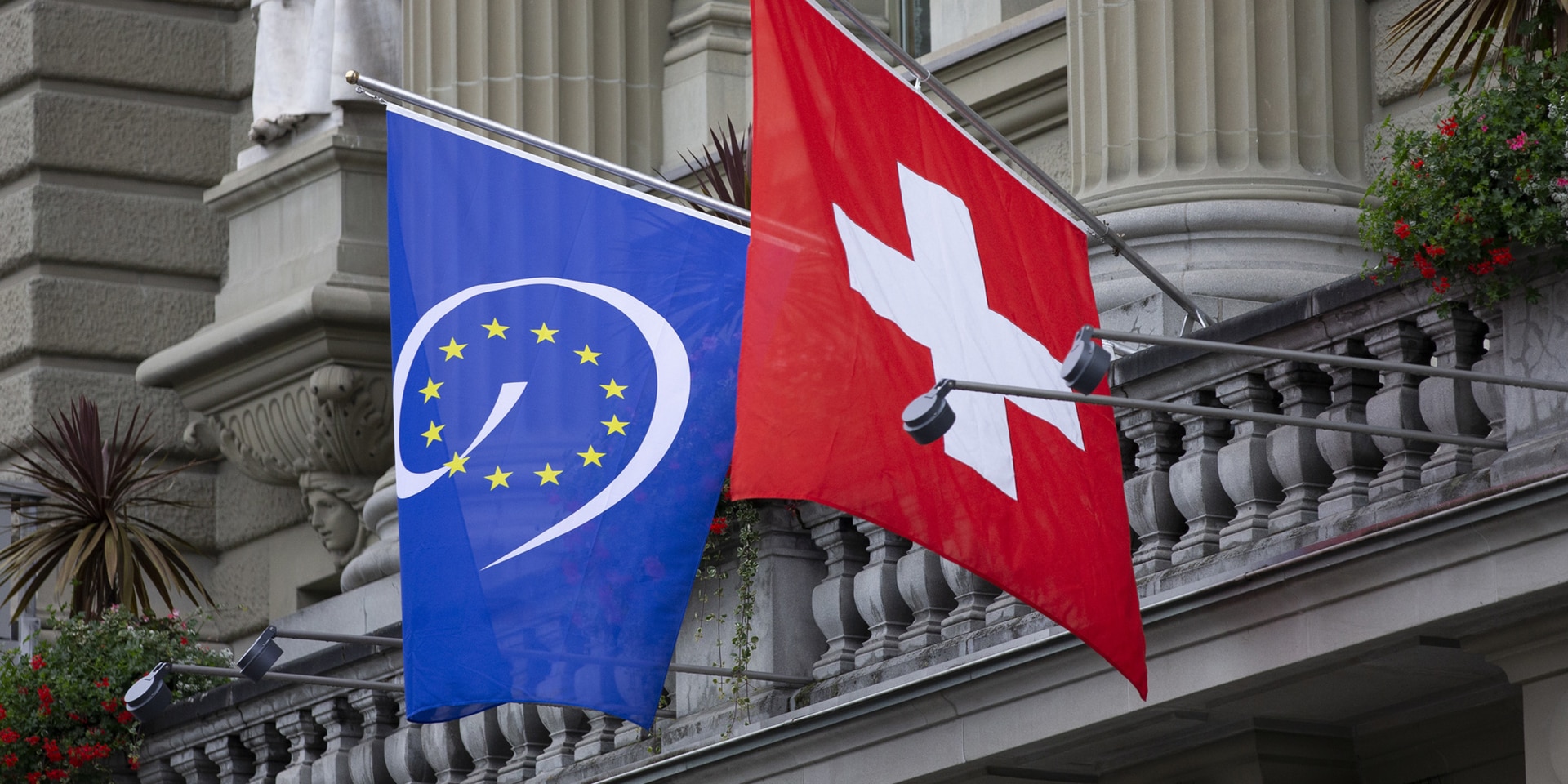New trends influencing human rights protection
Democracy, the rule of law and human rights are under pressure in Europe too. The European Court of Human Rights is working to remedy this. The court is using a new strategy to adapt to current trends such as digitalisation and COVID-19. The FDFA is providing CHF 250,000 in funding to support this strategic realignment so that pending cases can be processed more rapidly.

Digitalisation and COVID-19 are raising new issues of law for Strasbourg's European Court of Human Rights. © Keystone
COVID-19 vaccination requirements for some professions, appeals against oil production licences and questions around the legality of restricting website access are uncharted territory for the European Court of Human Rights (ECHR) in Strasbourg. These issues are raising new questions and allowing the court to develop its case law. The ECHR is using a new case management strategy to prioritise urgent and important cases, allowing it to adapt to emerging trends such as digitalisation, COVID-19 and climate change.
COVID-19 vaccination requirement (fr)
Restricting website access (fr)
A model of success
The ECHR model sets a good example for effective multilateralism, with more than 50,000 new applications submitted every year. It is the duty of the ECHR to ensure the European Convention on Human Rights is upheld. The convention safeguards various rights and freedoms for people in Europe, including the right to life, the right to liberty and security, and freedom of expression, as well as forbidding torture and discrimination. Anyone who believes their human rights have been violated by a member state may file an application with the ECHR, whose judgment is binding. The ECHR thus plays a unique role in maintaining the rule of law and protecting human rights. It protects people from the arbitrary use of state power and the inadequate separation of powers.
A victim of its own success
The ECHR's success has led to problems of its own, though: by 2010 the flood of applications had created a considerable backlog. Under Switzerland's chairmanship, the Council of Europe's Committee of Ministers initiated a reform process in Interlaken in 2010. In 2012, the member states of the Council of Europe also established the 'Brighton special account', which allows states to provide additional financial support to the court. Thanks to the initiative, the backlog was reduced from 160,000 to 62,000 cases by 2020.
A strong ECHR is in Switzerland's interests
In order to help the ECHR tackle the remaining backlog and address important new issues, the FDFA's Peace and Human Rights Division is making a single contribution of more than CHF 250,000 to the Brighton special account, thereby supporting human rights institutions in their capacity to act. This contribution should also help the ECHR to develop its case law in the new areas mentioned above.

In line with the Federal Constitution and the Foreign Policy Strategy (FPS) 2020–23, Switzerland is committed to the universal protection of human rights internationally. The Guidelines on Human Rights 2021–24, which consolidate the ideas of the FPS, stipulate that Switzerland must cooperate with actors who promote human rights. This includes strengthening the ECHR, whose role as an international authority for appeals makes it vital in the protection of human rights.
Switzerland upholds its obligations
Switzerland joined the Council of Europe in 1963. The European Convention on Human Rights was approved by the Swiss Federal Assembly in 1974 and ratified in the same year, giving Swiss citizens access to the ECHR. Since the convention entered into force, more than 8,000 applications have been filed against Switzerland. The ECHR has declared the majority of these applications to be inadmissible. The court gave rulings on 206 applications against Switzerland and found that the European Convention on Human Rights had been violated in 59% of the cases. This figure is evidence of the effectiveness of Switzerland's rule of law. On average, the ECHR finds at least one violation in 84% of all admissible applications.
The impact of judgments
The European Convention on Human Rights and the judgments of the ECHR have a tangible impact on Switzerland's legal system and human rights protection. For example, following a decision to compensate asbestos victims (de) despite the limitation period having expired, the Compensation Fund for Asbestos Victims Foundation was established in 2017 to ensure that asbestos victims are compensated financially. The limitation period was also extended to 20 years in cases where long-term effects emerge many years after the event that caused them. Another example of Swiss law adapting to the requirements of the ECHR is the 2013 amendment to the law governing surnames for married couples. The amendment put men and women on an equal footing after the ECHR found the law to be discriminatory in 2010.
Decision to compensate asbestos victims (de)
The European Convention on Human Rights is one of the foundations of Switzerland's political system, which is shaped by democracy and the rule of law. The fundamental rights enshrined in the 1999 Federal Constitution are based on the European Convention on Human Rights. These grant all Swiss citizens robust human rights protection, which is reinforced by their access to the ECHR.



